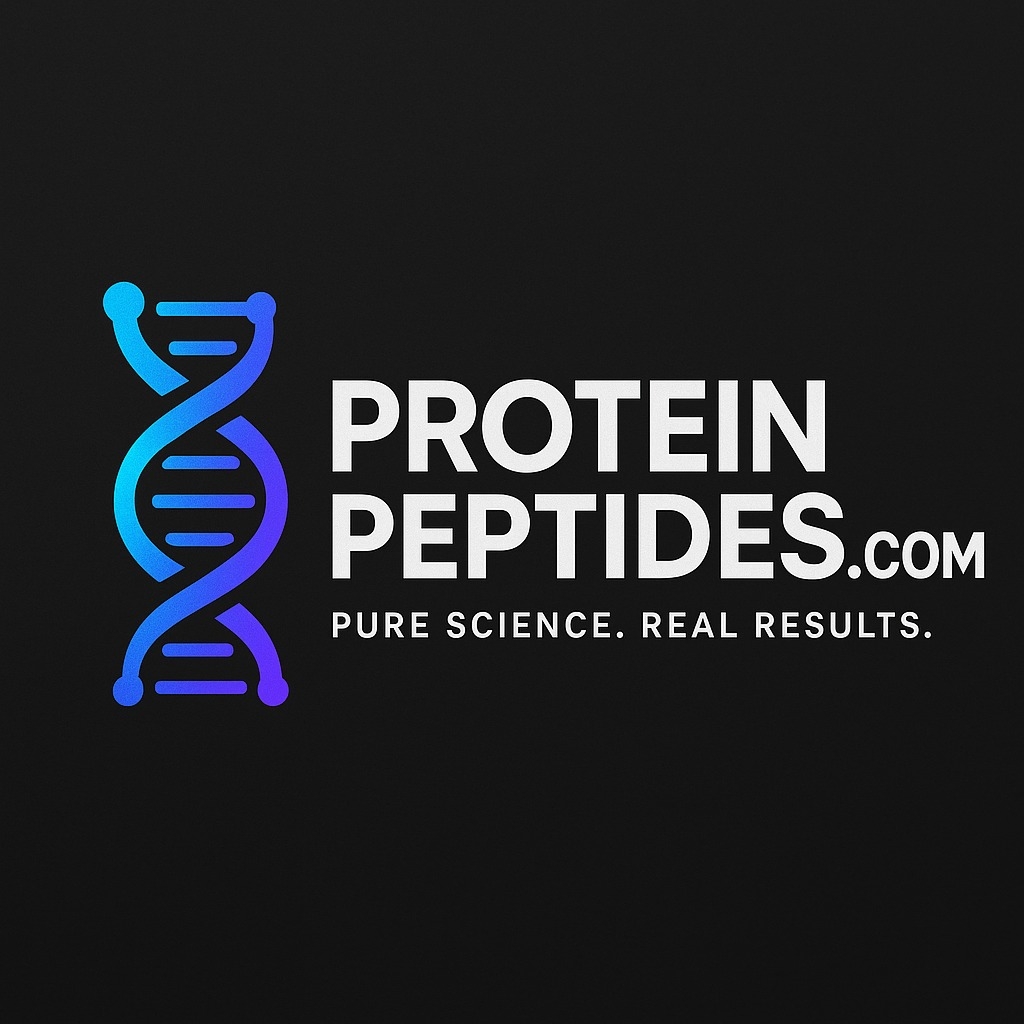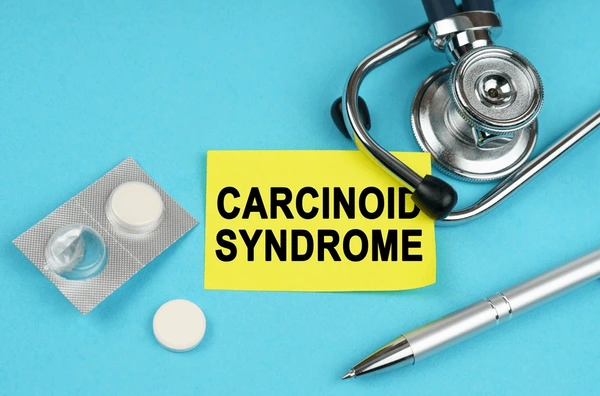How Protein Peptides Can Help with Carcinoid Syndrome
Carcinoid syndrome is a rare condition that occurs as a result of carcinoid tumors, which are slow-growing cancers that typically develop in the neuroendocrine cells of the gastrointestinal tract, lungs, or other organs. These tumors release excess amounts of serotonin and other bioactive substances into the bloodstream, leading to a range of symptoms collectively known as carcinoid syndrome. The hallmark symptoms of this syndrome include flushing, diarrhea, wheezing, heart valve damage, and skin rashes. These symptoms occur due to the release of substances like serotonin, histamine, and prostaglandins, which cause vasodilation, gastrointestinal motility, and other effects.
Carcinoid syndrome is most often diagnosed when a carcinoid tumor metastasizes (spreads) to the liver, where it can release large amounts of these substances directly into the bloodstream. While the tumors are typically not highly malignant, the symptoms of carcinoid syndrome can significantly impact a patient’s quality of life. Treatment options generally focus on managing symptoms, reducing hormone secretion, and controlling tumor growth. However, despite the availability of therapies such as somatostatin analogs, interferon therapy, and chemotherapy, many patients still experience debilitating symptoms and need additional therapeutic approaches.
Emerging research into protein peptides has shown promise in managing carcinoid syndrome by modulating the release of hormones and other substances, improving the regulation of the immune system, and enhancing overall quality of life. In this article, we will explore how protein peptides can help with carcinoid syndrome, their mechanisms of action, and the potential benefits of peptide-based therapies for this condition.
Understanding Carcinoid Syndrome
Carcinoid tumors are a subset of neuroendocrine tumors (NETs) that secrete bioactive substances, including serotonin, bradykinin, histamine, and prostaglandins, into the bloodstream. While carcinoid tumors themselves often grow slowly and may not cause noticeable symptoms, the release of these substances leads to carcinoid syndrome. The key features of this syndrome are often a result of serotonin, which causes vasodilation, smooth muscle contraction, and gastrointestinal disturbances. Symptoms of carcinoid syndrome can include:
- Flushing: A common symptom caused by the release of serotonin, which dilates blood vessels in the skin.
- Diarrhea: Increased serotonin can affect gastrointestinal motility, leading to frequent diarrhea.
- Wheezing and difficulty breathing: Serotonin and other substances can cause bronchoconstriction.
- Heart valve damage: Excess serotonin can lead to fibrosis and scarring in the heart valves, causing carcinoid heart disease.
- Skin rashes: Can be caused by the effects of serotonin and histamine.
In patients with metastatic carcinoid tumors, treatment typically focuses on symptom control, reducing the secretion of hormones, and targeting tumor growth. The use of somatostatin analogs like octreotide and lanreotide can inhibit the release of hormones, and medications like interferon-alpha may help control tumor growth. However, many patients still require further treatment to address the underlying pathophysiology of the syndrome.
How Protein Peptides Can Help with Carcinoid Syndrome
Protein peptides offer a novel therapeutic approach for managing carcinoid syndrome. These peptides, which are short chains of amino acids, can target specific biological processes that regulate hormone release, modulate the immune system, and reduce inflammation. Here are some key ways in which protein peptides can help with carcinoid syndrome:
1. Inhibiting Hormone Secretion
The excessive release of hormones, particularly serotonin, is central to the symptoms of carcinoid syndrome. Peptides that modulate hormone secretion or block the action of specific hormones could offer significant benefits for patients with this condition.
- Somatostatin Analogs: Somatostatin is a natural peptide hormone that inhibits the release of various hormones, including serotonin. Somatostatin analogs, such as octreotide and lanreotide, are widely used in the treatment of carcinoid syndrome. These analogs bind to somatostatin receptors on the tumor cells, reducing the secretion of serotonin and other hormones. By inhibiting hormone release, somatostatin analogs help alleviate symptoms like flushing, diarrhea, and wheezing, making them one of the most effective treatments for carcinoid syndrome.
- Growth Hormone-Releasing Peptides (GHRPs): GHRPs are peptides that stimulate the release of growth hormone from the pituitary gland. While these peptides are primarily used to promote growth hormone production, some studies have suggested that certain GHRPs may also influence the secretion of other hormones, including serotonin. By modulating the release of growth hormone and other substances, GHRPs could potentially help control hormone imbalances in carcinoid syndrome.
2. Regulating the Immune System
The immune system plays a significant role in regulating the growth of carcinoid tumors and the development of symptoms associated with carcinoid syndrome. Some protein peptides can help modulate immune responses, reducing the inflammatory processes that contribute to symptoms like flushing and wheezing.
- Interleukin-10 (IL-10) Peptides: IL-10 is an anti-inflammatory cytokine that helps regulate immune responses. IL-10 inhibits the production of pro-inflammatory cytokines and reduces the activation of immune cells, which can contribute to the chronic inflammation seen in carcinoid syndrome. By reducing inflammation and modulating the immune response, IL-10 peptides could help control symptoms like flushing, skin rashes, and other signs of inflammation.
- Thymosin Beta-4 (TB-500): TB-500 is a peptide that has been shown to have regenerative and anti-inflammatory properties. It promotes tissue repair, reduces inflammation, and enhances cell migration. In the context of carcinoid syndrome, TB-500 could help manage inflammation in the tissues affected by excessive hormone release, including the skin, gastrointestinal tract, and lungs.
3. Reducing the Risk of Heart Valve Damage
One of the most severe complications of carcinoid syndrome is carcinoid heart disease, which occurs due to the excessive secretion of serotonin and other bioactive substances that cause fibrosis and scarring of the heart valves. Over time, this can lead to heart valve dysfunction and other cardiovascular issues. Protein peptides that regulate serotonin levels and reduce fibrosis could help prevent or mitigate the risk of heart valve damage.
- Angiotensin-Converting Enzyme (ACE) Inhibitor Peptides: ACE inhibitors are peptides that regulate the renin-angiotensin system, which plays a role in regulating blood pressure and fluid balance. Some studies suggest that ACE inhibitors may help reduce the fibrosis associated with carcinoid heart disease by modulating the production of collagen and other extracellular matrix proteins. By preventing excessive scarring in the heart valves, ACE inhibitor peptides may help protect against the cardiovascular complications of carcinoid syndrome.
4. Promoting Tissue Regeneration and Healing
Carcinoid syndrome can lead to significant tissue damage, particularly in the gastrointestinal tract, skin, and lungs. Some protein peptides are known for their regenerative properties, which can help repair damaged tissues and improve overall organ function.
- BPC-157 (Body Protection Compound 157): BPC-157 is a synthetic peptide that has shown promising results in promoting tissue healing and reducing inflammation. It has been found to accelerate the regeneration of damaged tissues, including the gastrointestinal tract and skin. For patients with carcinoid syndrome who experience tissue damage from excessive hormone secretion, BPC-157 could help promote healing and restore function.
- GHK-Cu (Copper Peptide): GHK-Cu is a naturally occurring peptide known for its tissue-regenerating and anti-inflammatory properties. It has been shown to promote collagen production, accelerate wound healing, and reduce oxidative stress. In carcinoid syndrome, GHK-Cu may help promote the healing of tissues affected by the chronic effects of hormone overproduction, such as the gastrointestinal mucosa or damaged skin.
Potential Benefits of Protein Peptides for Carcinoid Syndrome
Protein peptides offer several potential benefits for individuals with carcinoid syndrome:
- Targeted Action: Peptides can specifically target the mechanisms involved in hormone secretion, inflammation, and tissue damage, offering more effective and personalized treatments.
- Fewer Side Effects: Compared to traditional therapies like chemotherapy or radiation, peptide-based treatments are generally more targeted and may have fewer systemic side effects.
- Improved Quality of Life: By controlling symptoms like flushing, diarrhea, and wheezing, peptide-based therapies could significantly improve the quality of life for individuals with carcinoid syndrome.
Conclusion
Protein peptides offer a novel and promising approach to managing carcinoid syndrome by targeting the underlying causes of the disease. Peptides like somatostatin analogs, IL-10, BPC-157, and GHK-Cu have the potential to reduce hormone secretion, control inflammation, promote tissue repair, and protect against heart valve damage. As research continues to explore the therapeutic potential of peptides for carcinoid syndrome, these treatments could become a valuable addition to existing therapies, offering better symptom control, fewer side effects, and improved outcomes for patients with this challenging condition.
How Protein Peptides Can Help with Carcinoid Syndrome
References
- Oberg, K., et al. (2004). Treatment of neuroendocrine tumors with somatostatin analogues. European Journal of Cancer, 40(10), 1470–1478.
- Kulke, M. H., et al. (2012). Telotristat etiprate, a serotonin synthesis inhibitor, in carcinoid syndrome. Journal of Clinical Oncology, 30(28), 3526–3533.
- Modlin, I. M., et al. (2008). A 5-decade analysis of 13,715 carcinoid tumors. Annals of Surgery, 247(1), 64–81.
- Tuvim, M. J., et al. (2009). IL-10: A potential therapeutic agent for inflammatory lung disease. Inflammation, 32(3), 193–202.
- Tymvios, C., et al. (2009). Thymosin beta-4 in tissue regeneration. Journal of Biomedical Materials Research Part B: Applied Biomaterials, 90(2), 642–651.
- Bhattacharyya, S., et al. (2008). Carcinoid heart disease: current understanding and future directions. American Journal of Cardiology, 102(5), 818–821.
- Zhou, L., et al. (2009). Angiotensin-converting enzyme inhibition reduces cardiac fibrosis. Circulation Research, 104(4), 495–503.
- Gwyer Findlay, E., et al. (2014). BPC-157 as a therapeutic agent for gastrointestinal and systemic healing. Molecular and Cellular Biochemistry, 393, 199–207.
- Pickart, L., & Margolina, A. (2018). GHK-Cu peptide in skin regeneration and anti-aging. International Journal of Molecular Sciences, 19(1), 225.
- Caplin, M. E., et al. (2015). ENETS consensus guidelines for the management of patients with digestive neuroendocrine tumors. Neuroendocrinology, 103(2), 71–82.





